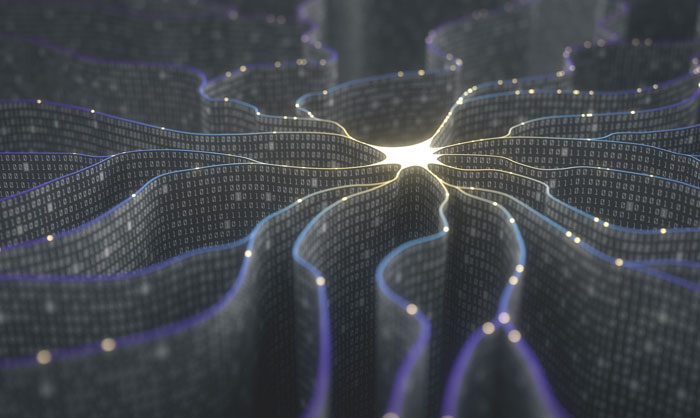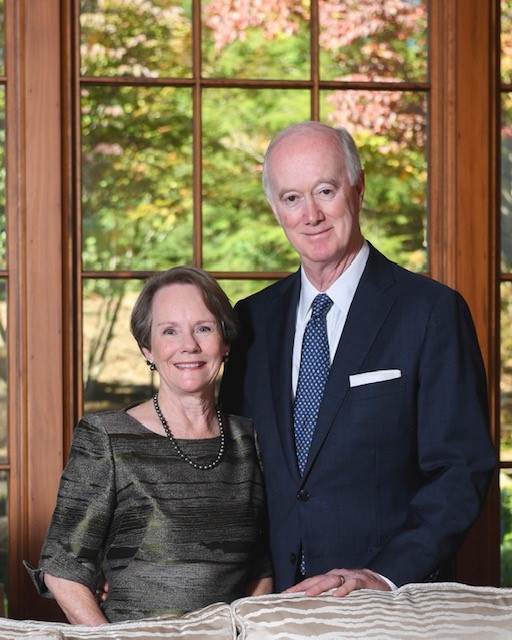 In October, UAB announced a $5 million gift to establish the James Milton and Sallie R. Johnson Fund to Support Alzheimer’s Disease Research in the Department of Neurology and the UAB Center for Neurodegeneration and Experimental Therapeutics. The fund will support research through a human cell modeling initiative using a technology called induced pluripotent stem cells (iPSC), which has the potential to significantly advance Alzheimer’s research.
In October, UAB announced a $5 million gift to establish the James Milton and Sallie R. Johnson Fund to Support Alzheimer’s Disease Research in the Department of Neurology and the UAB Center for Neurodegeneration and Experimental Therapeutics. The fund will support research through a human cell modeling initiative using a technology called induced pluripotent stem cells (iPSC), which has the potential to significantly advance Alzheimer’s research.
The decision to make the gift was a personal one for the Johnsons. Jim Johnson’s grandmother, mother, and sister have all suffered from the disease, and he is familiar with the toll it takes not just on the person diagnosed but also on the entire family.
“Research like this needs to happen, and UAB needs to be a leader,” Johnson says. “Lots of people have a relative who has Alzheimer’s. I maintain that it’s not fully recognized how traumatic it is. Current treatment is a hopeless continuation of decline for the patient and their family.”
 Sallie and James JohnsonThe Johnsons’ gift will enable UAB to hire an iPSC researcher and establish a fully functional and staffed lab to develop the technology for Alzheimer’s research.
Sallie and James JohnsonThe Johnsons’ gift will enable UAB to hire an iPSC researcher and establish a fully functional and staffed lab to develop the technology for Alzheimer’s research.
“We are deeply grateful to the Johnsons for their generous gift that will dramatically accelerate our research on Alzheimer’s and other devastating neurodegenerative diseases,” says UAB President Ray Watts, M.D.
Alzheimer’s disease currently affects more than 6.5 million people in the U.S. and is projected to affect more than 20 million more people over the next 20 years, says David Standaert, M.D., Ph.D., John N. Whitaker Endowed Professor and chair of the Department of Neurology.
After meeting with Standaert and Erik Roberson, M.D., Ph.D., Rebecca Gale Endowed Professor and director of the UAB Alzheimer’s Disease Center and the Center for Neurodegeneration and Experimental Therapeutics, the Johnsons learned they could make the most significant impact by bringing the iPSC technology to UAB.
“It’s an amazing technology,” Standaert says. “For a long time, we thought cell development was a one-way path, and once the cell developed, there was no going back. The discovery of how to make iPSCs changed that and earned a Nobel Prize in 2012. Now, for example, you can grow a skin cell in a dish and turn back the clock and turn it into a stem cell. It can then become any type of cell, so if we’re studying Alzheimer’s, we can induce it to become a brain cell in a dish.”
Jim Johnson says his and Sallie’s gift will create new tools to contribute to the treatment and eventual cure of Alzheimer’s. “We must be successful,” he says. “And we want it to happen at UAB.”
UAB was named an exploratory center for Alzheimer’s research by the National Institutes of Health in 2020—the first step in being designated as a federal Alzheimer’s disease center. – Rachel Burchfield